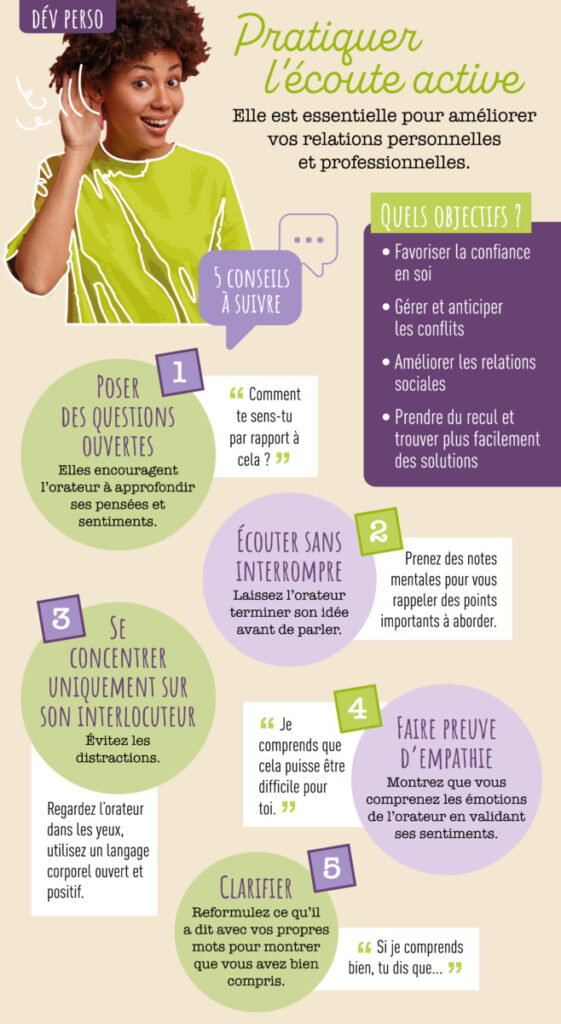All the rules of communication are based on a simple principle: getting a message across. In the case of work teams, this communication involves calm and open dialogue. But you need to know how to listen to each other. Here are 5 tips for practising active listening, the key to successful communication.

What are the objectives of active listening?
- Promoting self-confidence
- Managing and anticipating conflict
- Improving social relations
- Take a step back and find solutions more easily
[Read also]
1. Ask open-ended questions
Open questions encourage the speaker to go deeper into their thoughts and feelings. It shows that you are genuinely interested in what they are saying.
Tips
Avoid closed questions that can be answered with "yes" or "no". For example, ask "How do you feel about this?" rather than "Are you happy?
2. Listening without interrupting
Let the speaker finish his or her idea before speaking. Avoid hasty judgements or interruptions that may discourage the other person.
Tips
Take a deep breath if you feel the need to speak too soon. Make mental notes to remind you of important points to make once the speaker has finished.
3. Concentrate solely on the person you are talking to
Avoid distractions and focus all your attention on the person speaking. This means putting your phone away, avoiding thinking about your answer or other concerns.
Tips
Look the speaker in the eye, use open and positive body language, and nod to show you're committed.
4. Show empathy and validate emotions
Show that you understand the speaker's emotions by validating their feelings. This creates a safe and encouraging space for exchange.
Tips
Use phrases such as "I understand how difficult this must be for you" or "This must be very frustrating".
5. Rephrase and ask for confirmation of what you have understood
After the speaker has finished, rephrase what they have said in your own words to show that you have understood and to clarify the important points.
Tips
Use phrases like "If I understand correctly, you're saying that..." or "So what you're saying is...".
Practising active listening is a valuable skill that can improve your personal and professional relationships. By following these tips, you can become a better listener and contribute to more meaningful and productive conversations.



